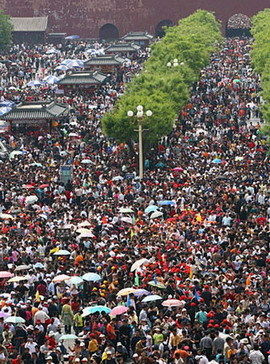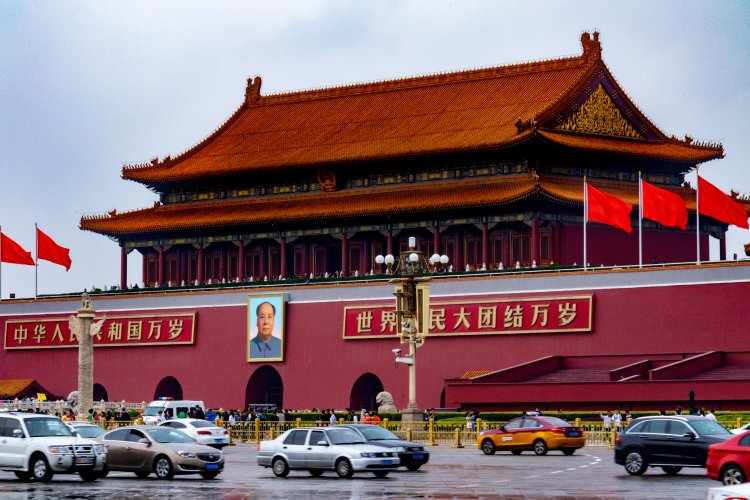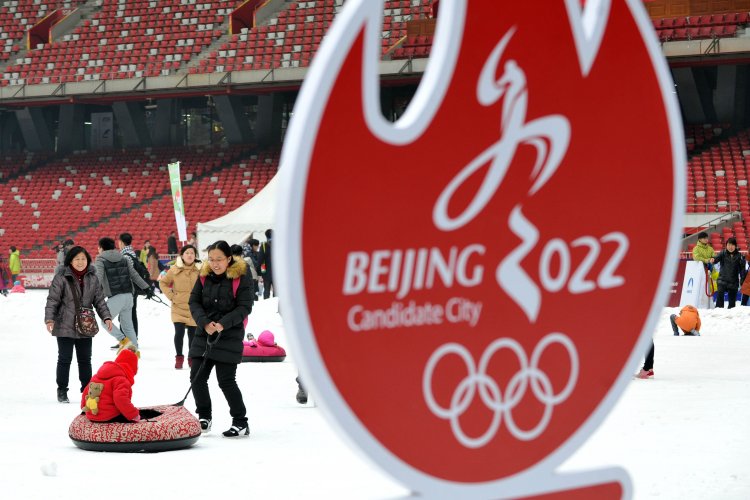Throwback Thursday: The Immaculate Conception of Chinese National Holidays
For those of us who haven't lived here for all that long, we tend to take China's national holidays for granted; some ancient recognition of scripture passed down from the final Emperor and maintained in good trust by the valiant Chinese Communist Party.
While that may be partially true, it will shock you to learn that Tomb-Sweeping Day, Dragon Boat Festival, and Mid-Autumn Festival weren't acknowledged public holidays until 2008.
RELATED: China Announces 2017 Official Holiday Calendar
This was a part of the government's push to divide holidays into easier chunks in hopes of relieving massive congestion and crowds, or at least spreading them out throughout the year. This was done by abolishing May holiday, one of three of China's seven-day "Golden Weeks" (the other two being Chinese New Year and October holiday, an elongation of National Day). The Golden Week name was taken from Japan (the horror!) and took hold in China in 1999. They take their name from the increased economic activity that the holiday allows, with many people opting to travel back home to spend time with their family or go on vacation.

As we all know, there's actually no such thing as a seven-day holiday in China, with work days being shifted around and added to pre- or proceeding weekends to make up for lost time. This year's weekend makeup allocation is only five days as compared to last year's six, so at least it appears we're moving in the right direction. That being said, every year we're each battling for less and less space while on the move, with only an estimated piddly 28 million traveling in 1999 compared to the 589 million this year. Yikes.
Below you can read the post written by former Beijinger editor Paul Pennay, regarding the eradication of May Golden Week holiday.
 The photo (left) was taken at the entrance to the Forbidden City on May 3, 2007, a day on which 114,800 people visited the former Imperial Palace. One of the new laws that China’s hard-working State Council spent Sunday passing has reduced the likelihood of such a huge number of people visiting the Palace at the same time next year. The new law, which goes into effect on Jan 1, 2008, will see the shortening of one of the golden weeks and the addition of three new traditional Chinese festivals (Tomb-Sweeping Day, Dragon-Boat Festival and Mid-Autumn Festival) to the list of official holidays. The implementation of the law will also see the number of official holidays increase from 10 to 11 every year.
The photo (left) was taken at the entrance to the Forbidden City on May 3, 2007, a day on which 114,800 people visited the former Imperial Palace. One of the new laws that China’s hard-working State Council spent Sunday passing has reduced the likelihood of such a huge number of people visiting the Palace at the same time next year. The new law, which goes into effect on Jan 1, 2008, will see the shortening of one of the golden weeks and the addition of three new traditional Chinese festivals (Tomb-Sweeping Day, Dragon-Boat Festival and Mid-Autumn Festival) to the list of official holidays. The implementation of the law will also see the number of official holidays increase from 10 to 11 every year.
The law also makes it official that women receive a half-day holiday on March 8’s International Women’s Day (Funu Jie), youth older than 14 get half a day off on May 4 on Youth Day (Qingnian Jie), the under 14s are spoiled with a full-day off on June 6 for Children’s Day (Ertong Jie), while members of the PLA get a half-day off on August 1. In addition, some of the national minorities are able to determine their own holidays in accordance with their own traditional festivals.
More stories by this author here.
Email: tomarnstein@thebeijinger.com
WeChat: tenglish_
Instagram: @tenglish__
Photo: dailypakistan.com







